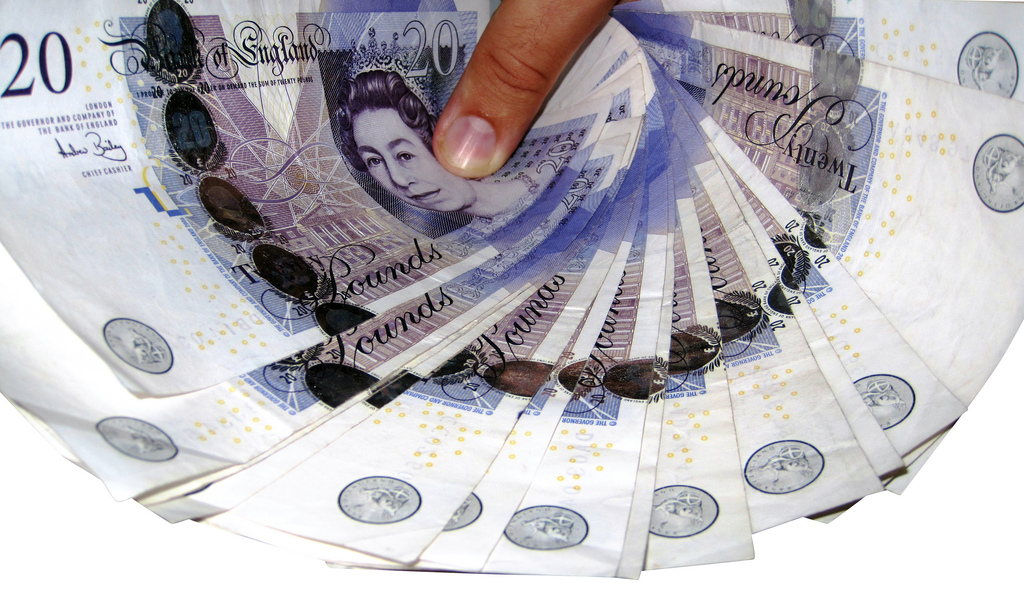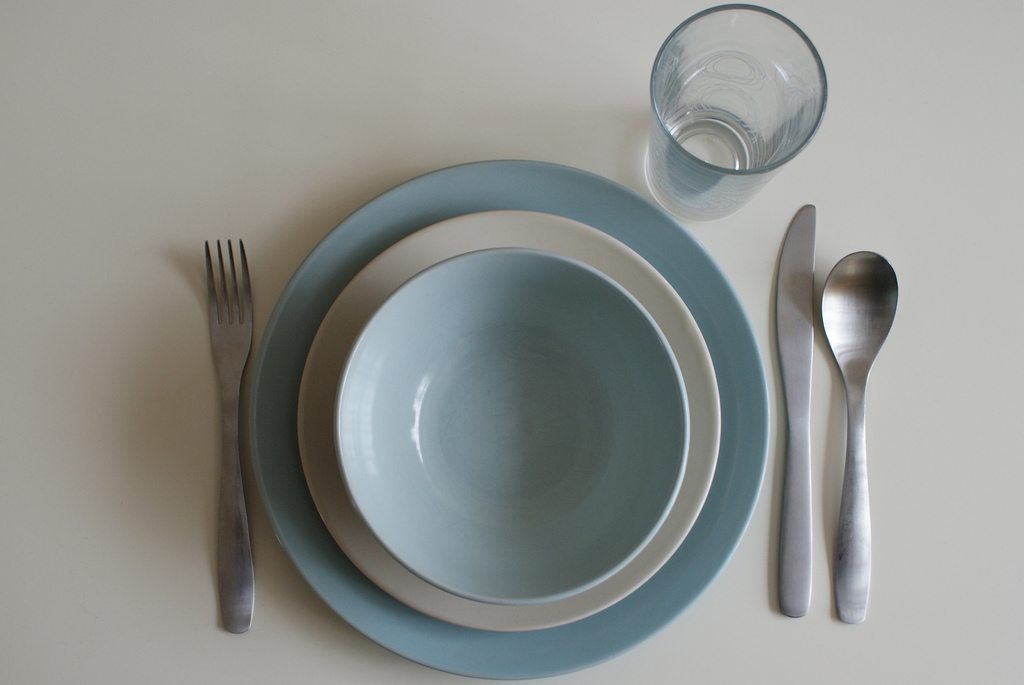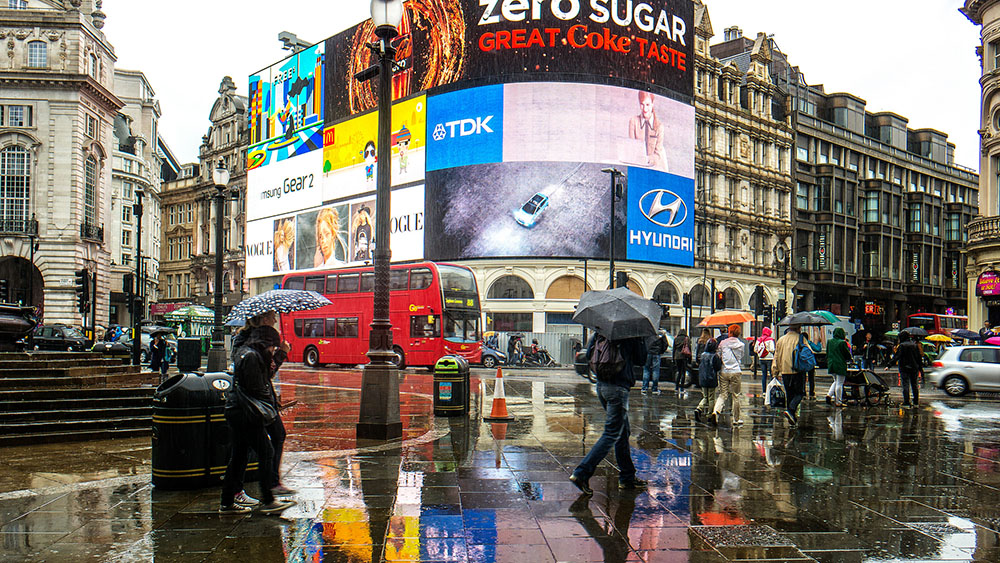Blog

British Etiquette – A guide for international students
21-07-2016
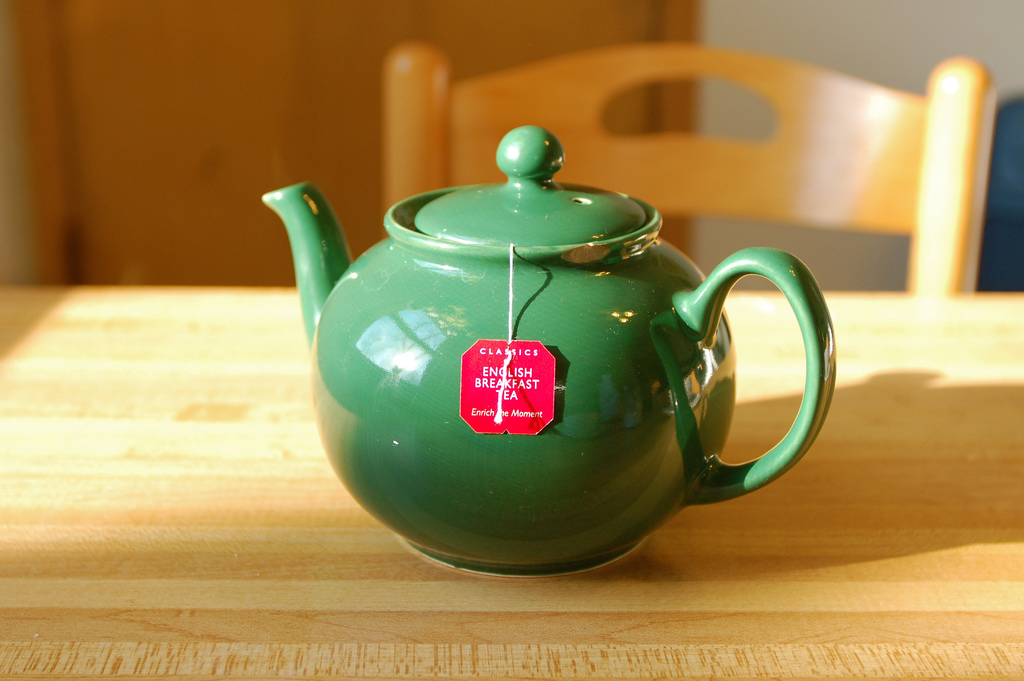
Etiquette is the code of polite behaviour in society. Knowing a little bit about British etiquette will help you ensure that your behaviour is polite and appropriate whilst you are studying in the UK. Below we’ve given you a few hints and tips about some of the most common codes of British etiquette.
Apologising
In the UK, people have a tendency to over-apologise. For example, if you tell someone about something unfortunate which has happened to you, it’s quite likely
that they will apologise. E.g. “I’m so sorry to hear that you
have been unwell”.
British people cannot resist the urge to apologise, for example, if someone accidentally bumps into you, it would be common for you to apologise and say “I’m sorry” as though you are sorry for being in their way. If you have reserved a seat on a train but somebody is sat in it, it would be common to say “I’m so sorry but you appear to be sat in my seat”. If somebody spills your coffee, again it’s quite normal for the victim to apologise. Of course, the person to blame would apologise as well, but apologising as the victim is a very English thing to do.
In the UK, we like receiving warm heartfelt apologies as well as giving them. If you have done something to upset or offend someone, it is important to offer them a genuine apology. A half-hearted apology will not go down well.
If you are offered an apology, it is considered good grace to acknowledge and accept it. In some cases you may still be a little upset over the incident, but by not accepting the apology the situation will escalate. A typical way of accepting an apology is by saying “it’s okay”, “don’t worry about it”, or for more serious incidents, “I forgive you”.
Queuing
In the UK, wherever there is a mass of people you will find an orderly queue. British etiquette dictates that when you arrive, you join the back of the queue so that each person receives the service in the order that they arrived. We ‘wait our turn’ in queues. The notion of an orderly queue relies on everyone in the queue agreeing that this is fair. It is seen as unfair if someone doesn’t join the queue and pushes in.
Queuing can seem very strange if you are not used to it however if you are seen to ‘push in’ it is considered very rude and unfair to other people who have been waiting. If in doubt ask “is this the back of the queue?” to avoid offending anyone.
A common British trait is that despite everybody in the queue being annoyed with someone who has pushed in, very few people will ask that person to go to the back of the queue. British people do not like to cause a scene by arguing, but likewise, we like people to know we are annoyed in subtle ways. Instead people will shake their head, roll their eyes, tut, and/or have an angry facial expression. They may also complain to the person next to them in the queue.
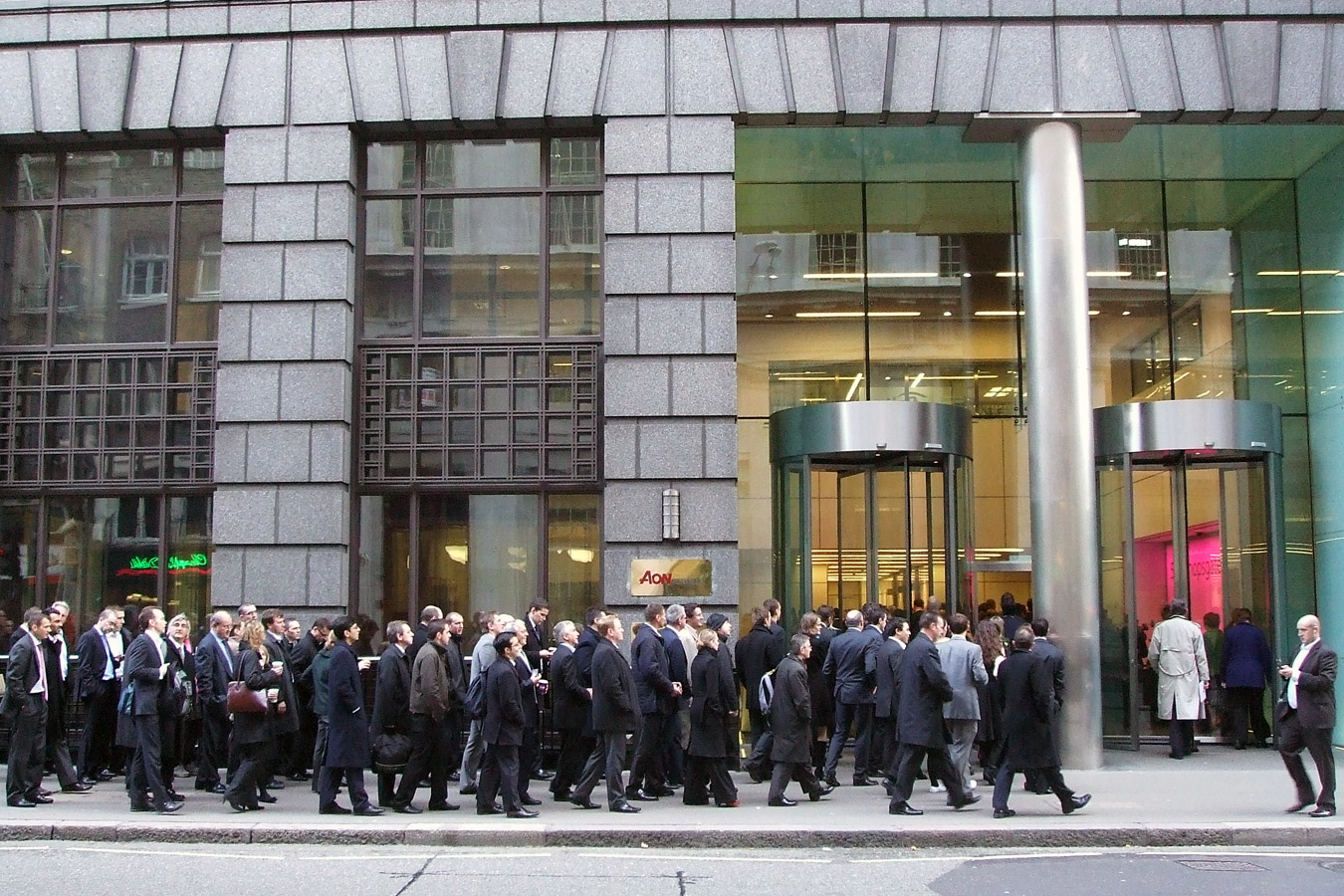 Photo by Daviddje
Photo by Daviddje
Please and thank you! Minding your Ps and Qs
Many people from outside the UK find it strange that we say please and thank you as much as we do. It is considered polite, well-mannered and is a regularity of British speech. What may surprise you is when we are in a shop, restaurant or anywhere we are receiving customer service, we say thank you to the person serving us e.g. when they give you change, the bill, or come to give you your food and drinks. In Britain, every social transaction is eased by reiteration of these phrases from both parties.
Remembering to say please and thank you is very important, if you are not doing it you may be told to ‘mind your p’s and q’s‘ or, more specifically, to say both ‘please’ (‘p’s) and ‘thank you’ (‘thank q’s).
Being tactile
Britain isn’t a particularly tactile country. Because of this, some cultures perceive British people as being completely unemotional whilst others perceive us as having a ‘stiff upper lip’. This refers to the fact that British people do have emotions, they’re just very good at hiding them. When a person’s upper lip begins to tremble, it is one of the first signs that the person has experienced deep emotion. The ‘stiff upper lip’ is an idiom to our ability to conceal our emotions and keep a straight face.
Whilst you may be hugged and kissed 2 or 3 times by a total stranger in some European countries, it’s unlikely that you would receive the same reception in the UK. Social kissing is becoming popular in Britain, but it is by no means an accepted norm. For example it is rare for men to kiss in the UK- this is usually a gesture reserved for women. Kissing is not appropriate in many professional situations. If you are unsure,stick to a handshake (see below).
Holding hands as friends in the UK is quite unusual. Instead, more common for female friends is to link arms. For male friends, there is usually no contact. Holding hands is usually reserved only for parent-children relationships, or between partners (e.g. girlfriend & boyfriend, husband & wife).
Discussing Money
Unlike in most countries, discussing how much you earn or how much something costs (anything from the cost of clothes, up to the price of a house) has traditionally been a strictly taboo subject according to British etiquette. Sometimes British people find it embarrassing to discuss money and it can be seen as rude.
If you are having a conversation with someone new, money and personal wealth are subjects best avoided. Only discuss money if the other person has raised this – then you know they feel comfortable talking about it. Definitely do not ask somebody how much they earn. If you talk about how much money you have and all of things you bought, it can be seen as bragging, particularly when it heightens the difference between your financial situation and that of the person you are talking to.
However, things are changing and British people are more open to discussing things such as house prices or how much their holiday cost. But usually this is if the item they have bought is perceived as a bargain, for example if they bought their house below market value because the seller wanted a quick sale or got a really good deal on their holiday package.
Photo by Images Money
Chivalry
Chivalry is seen as a very British trait and a distinguished feature of a gentleman. In old English Literature, women swoon over chivalrous men!
In modern day British etiquette, chivalry is still an admired trait however men must be careful that their chivalrous behaviour isn’t patronising to modern independent women. For example, taking of one’s coat and placing it in a puddle so a lady may step on it and not get her feet wet (a classic feature in Jane Austen novels) may not receive the gratitude it would have had in 1800.
Some examples of modern chivalry for the 21st century include:
- offering a lady your seat on the train if she is standing
- opening the door for a lady
- offering to carry a heavy bag for a lady if it looks as though she is struggling
- offering your jacket to a lady if she is cold
Respect authority figures
When a teacher, your homestay or anyone in a position of authority asks you to do something, you must respect them and do it. It is very rude to disrespect people in authority. If you do not understand something about UK culture then please just ask!
In your country, it may be considered respectful to look at the floor when you are being told off. In the UK, this would be considered a rude and disobedient gesture. When people are talking to you, even to tell you off, they expect eye contact.
Handshakes
A good firm handshake is a common way to greet someone in a business or social situation. People might make assumptions about you based on your handshake so it’s important to get it right. For example, if you offer a limp handshake, it can give people the impression that you are disinterested and/or not confident.
To give a good handshake:
- Firmly grasp the other person’s hand
- Get the pressure right – do not crush the other persons hand but equally do not offer a limp hand
- Check that your palms are not sweaty. Pat lightly and discreetly on your clothing before shaking someone’s hand if needed.
- Keep it brief. Shake the hand just two or three times before letting go.
- Accompany the handshake with direct eye contact and a smile.
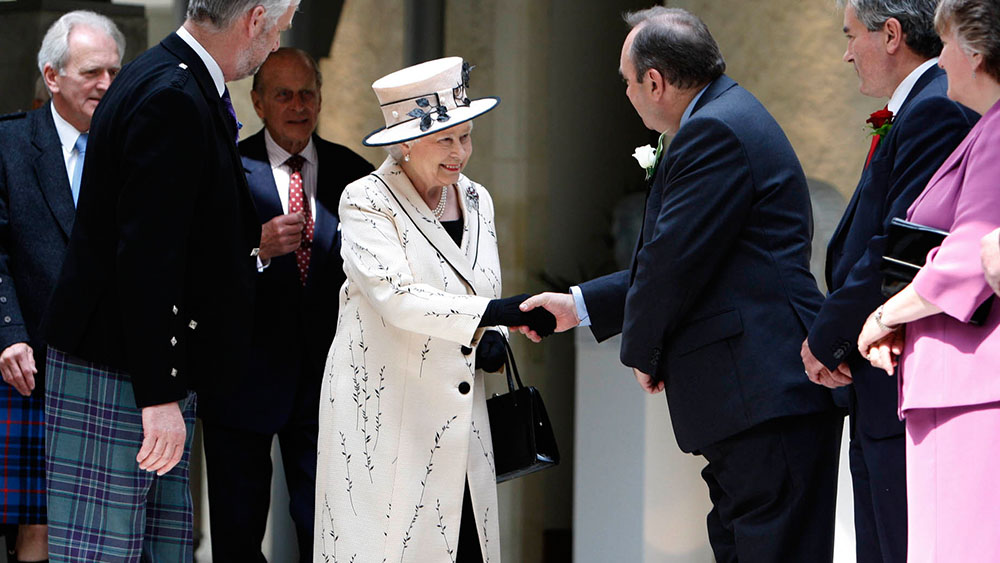 Photo Photo by Scottish Parliament
Photo Photo by Scottish Parliament
Helping around the house and school
In school you may have tasks and chores in your boarding house, it is polite and helpful that everyone does these equally to make the boarding house nice and clean for everyone to live in. Whilst you are at a homestay you should offer to help with the washing up and other household chores. Your homestay may not need you to help but it’s always polite to ask.
Switch off your mobile
We understand that technology is very important in today’s society but when you are talking to someone it is polite to put down your mobile or iPad so you can have a conversation with them. It is especially rude to use your mobile when eating at the dinner table. In the UK dinner time is a time for talking and chatting with family or friends.
Table Manners
Good manners at the dining table are very important in Britain. It is quite likely that you will find British table manners strange when you first arrive in the UK and it will take you a while to get used to them. Here are some pointers to help you:
- Unless your host instructs you to start eating immediately, wait until everyone has been served their food until you start eating.
- If you are dining in a group and food is shared, put others’ needs before your own. Offer to serve food to your neighbours first, and do not take too much; leave enough for others, and do not take more than you can eat.
- If you are right handed, your knife should be held in your right hand and your fork should be held in your left hand. If you are left handed, it is becoming more acceptable to hold your knife and fork the other way around.
- Cutlery should be rested on the sides of the plate between mouthfuls and together in the centre when you are finished.
- Never talk whilst there is food in your mouth.
- Do not eat nosily. In the UK, people eat very quietly, almost silently. It will seem very strange if you make a lot of noise whilst you eat. Take small mouthfuls, keep your mouth closed when you chew, and swallow delicately. When drinking soup do not slurp.
- Eat slowly. Eating quickly and/or overeating makes you appear greedy.
- Do not pass gas or wind at the dining table. In some cultures this is a sign of appreciation but in the UK this is seen as very rude and doing so will upset other people at the dining table.
- If you are staying with a homestay, you should wait until everyone has finished or you are told to leave the table. If you really need to leave, you can ask to leave the table.
Photo by Gisela Francisco
The toilet
There’s a lot to know about British etiquette when it comes to the toilet. So much in fact that we have written a separate blog post on this subject – using the toilet in the UK.
Names
It is becoming increasingly common to call people by their first name in Britain, even in certain professional situations, for example most people are now on first name terms with their doctor where as in the past they had always been known by their surname e.g. “Dr. Smith.”
There remains certain situations where you would never address a person by their first name unless you were invited to do so. This includes your teachers and people of an older generation. For many older people the easy use of their first name is seen as over-familiar. If you’re not sure, opt for formality (e.g. Mr and Mrs Smith).
Weather
In Britain, we love to talk about the weather! Perhaps it’s due to the unpredictability of the weather in the UK and our inability to prepare for extreme weather conditions. For example, the UK grinds to a halt if there is more than a few inches of snow fall.
Talking about the weather serves as an ice-breaker. When a British person meets a stranger a ‘safe’ subject of discussion is the weather. The function of the conversation is to initiate contact between two individuals. The conversation will usually take a diversion once a shared common ground is discovered but the weather in the UK provides us with a variety of topics as a starting point.
Photo by Garry Knight
British humour and jokes
British humour errs of the side of sarcasm and is often centred on real life, sometimes painful observations of ourselves and others. The British use humour to make the best of a situation and to lighten the mood. For example, if you spend a lot of time in your bedroom, your homestay might sarcastically ask “Why are you hiding in your room? Has your hair turned pink?!” In this case, your homestay does not really think your hair has turned pink. They have noticed that you are spending a lot of time in your room and they are joking that this could be because your hair has turned pink.
You may find it difficult to get used to it at first, but most important is that you don’t take British humour seriously. If you can laugh at yourself, you will be well liked and respected.
If you tell good jokes you will be very popular here as British people love jokes! We even have a day devoted to them – April Fools’ Day on the 1st April. You can find out more about April Fools’ Day by reading our blog post on festivals, holidays and events in the UK.
The key to telling a good joke is not always the joke itself but pitching it to the right audience. A joke can alienate or cause offence in the wrong context. Telling a joke can be a good way to break the ice and make new friends. Just make sure that your audience will appreciate the joke you tell.
Tea
In the UK, tea is an integral part of everyday life. It is part of many British people’s daily routine and serves many social functions. Tea has a long history in Britain and it’s worth reading this article if you are interested in finding out more about its social history.
In modern day Britain we love nothing better than ‘putting our feet up’ and enjoying a ‘cuppa‘ or a ‘brew’. You will be offered a cup of tea anywhere you go in the UK and as you travel around, you will spot many tea shops and cafes.
Afternoon tea is a big tradition in the UK and it’s worth having an afternoon tea whilst you are here. You can find out more about afternoon tea in our British food blog post.
Here are some tips on the polite way to drink tea in the UK:
- If you are in a group, you may be served a pot of tea. If the pot is placed near you, it is polite to pour tea for the rest of the group.
- Tea should be poured first and milk and sugar added afterwards.
- If your tea is too hot to drink, don’t blow on it. Wait patiently for it to cool.
- Never slurp tea!
- If you are having a cream tea the most common way of preparing a scone is to cut it in half, spread it with jam first, then add clotted cream on top.
English Breakfast teapot picture (featured image) by Scott Feldstein
